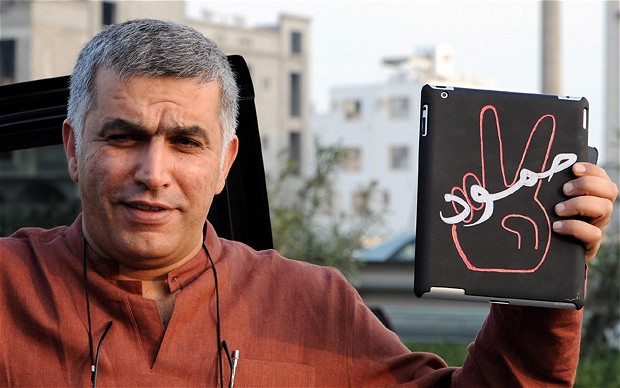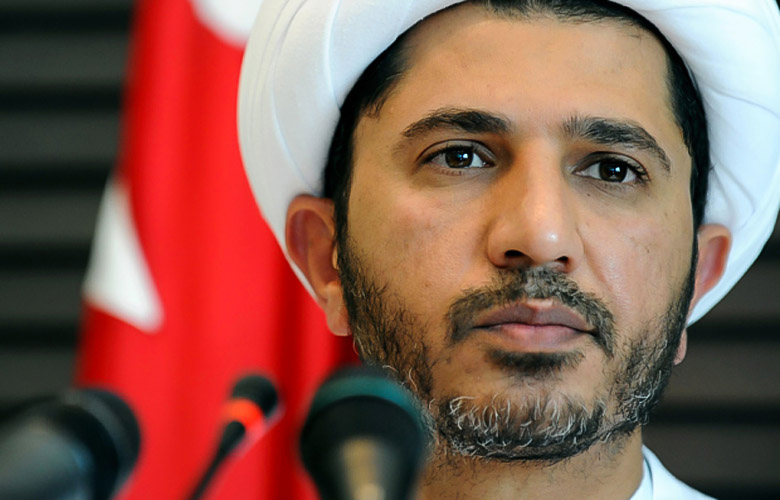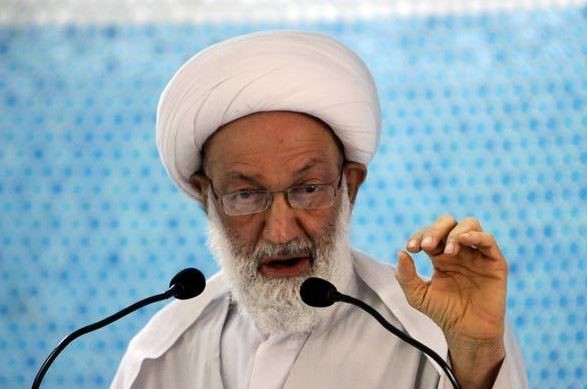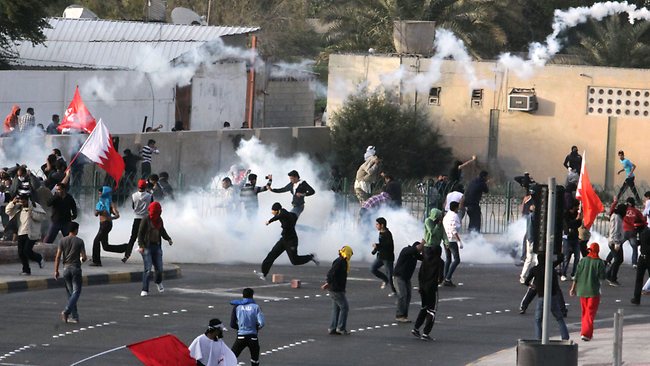Alwaght- European Parliament as well as Amnesty International urged Bahraini regime to free president of the Bahrain Center for Human Rights Nabeel Rajab, was taken into custody for posting tweets critical of the Al Khalifa monarchy.
"Bahraini authorities must immediately release human rights defender Nabeel Rajab and drop all charges against him ahead of his trial next week over Twitter posts criticizing the war in Yemen and allegations of torture in Bahrain’s main prison," Amnesty International said Thursday, Calling on the western-backed regime to put an end to "its barefaced assault on freedom of expression".

Nabbel Rajab Prominent Human Right Activist
Bahraini forces arrested Nabeel Rajab on 13 June following an intensive search of his house in the village of Bani Jamrah west of the capital, Manama.
“Parading a human rights defender like Nabeel Rajab in front of a court over tweets is a shameless attack on freedom of expression and is a further stain on Bahrain’s already appalling human rights record,” said Philip Luther, Director of the Middle East and North Africa Programme at Amnesty International.
"The Bahraini authorities’ decision to revisit these tweets from last year shows how desperate they are to muzzle their critics and stifle civil society,” Luther said. “They should drop these absurd charges, release Nabeel Rajab and other prisoners of conscience, and initiate a process of meaningful human rights reform.”
In a separate statement the EU Parliament condemned Al Khalifa crackdown on the state's dissent, saying "Parliament reiterates its strong condemnation of the ongoing campaign of repression against human rights defenders, the political opposition and civil society, as well as the restriction of fundamental democratic rights in Bahrain".
"It calls for the immediate and unconditional release of the prominent human rights defender Nabeel Rajab, the head of the Al-Wefaq opposition group Sheikh Ali Salman, and other human rights activists jailed on allegations relating to their rights to free expression, assembly, and association. It also urges that all charges against them be dropped," The EU Parliament red.
Bahrain has witnessed a month of intensified clampdown on the rights to freedom of expression, assembly, association and movement.
On June 14th Bahrain banned the main opposition group, al-Wefaq, deepening political impasse in Saudi-backed Arab Island.

Sheikh Ali Salam, leader of Al-Wefaq Opposition Bloc
Al-Wefaq’s Secretary General Sheikh Ali Salman has been in prison since December 2014 on charges of attempting to overthrow the regime and collaborating with foreign powers, Bahrain has extended his prison term from four years to nine.
Intensifying crack down on Bahraini opposition, Al Khalifa also has revoked the citizenship of Bahrain's leading Shiite cleric, Sheikh Isa Qassim on June 20.
Thousands of Bahraini citizens launched an open-ended rally in Diraz in front of Ayatollah Sheikh Isa Qassim's house, demanding the regime to restore the Bahrainis Spiritual leader.
In revoking Sheikh Qassem's citizenship, Bahrain accused him of sowing "sectarianism and violence," blaming him for the protests which have continued for years despite a heavy-handed crackdown on the island's mostly Shiite community.

Ayatollah Sheikh Isa Qassim
Bahrain has been witnessing pro-democracy demonstrations by majority Shiite Muslims since 2011 demanding a bigger role in government.
Al Khalifa regime responded to protesters with Iron fist with aid of its Arab patrons, Saudi Arabia and the UAE.
On 14 March, The Persian Gulf Cooperation Council deployed the so-called Peninsula Shield Force troops to Bahrain to help in the crackdown on peaceful protests. Saudi Arabia deployed about 1,000 troops with armored support, and the United Arab Emirates deployed about 500 police officers.
More than a hundred people have been killed while hundreds more were sent behind bars, most of them still there, in what human rights campaigners say is Manama’s lack of tolerance for dissent.



























